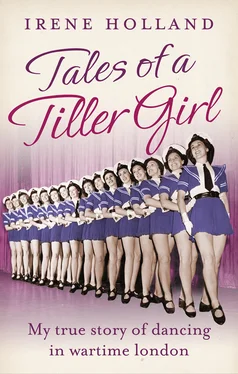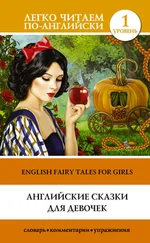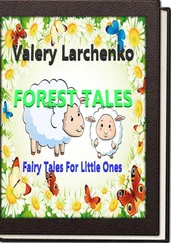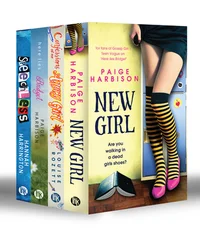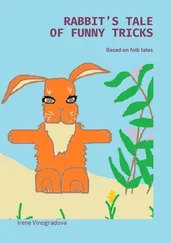I can’t ever remember anyone being upset or frightened during the air raids at school. It became part of our daily lives and we just accepted that that’s what happened.
A lot of children were evacuated to the countryside, but Mum refused point blank to let me go.
‘You’re staying here with me,’ she said.
I was so grateful for that. She was all I had in the world, and while the bombs didn’t scare me, being away from her would have terrified me.
Thankfully none of our family were injured or killed, although Mum’s brother, my Uncle Harry, had a bit of a close shave. We received a letter from him one morning telling us how an incendiary bomb had landed on his doorstep, and he hadn’t realised and opened the door.
‘Poor Uncle Harry,’ she said. ‘The bomb went off straight in his face.’
‘Is he all right, Mum?’ I asked.
‘Oh yes,’ she said. ‘It gave him a bit of a fright and singed all his eyebrows off, but apart from that he’s fine.’
Even though it was mean, we couldn’t help but have a bit of a chuckle about it.
The war also brought me a new playmate. I became best friends with a pretty little blonde girl called Diana Baracnik, whose family moved into our street after fleeing from Czechoslovakia. We’d climb trees or go to dance classes together, and after school I’d go round to her house and play dollies. I loved my dolls and I had about six of them. Some of them were china and some were papier mâché.
One person who felt very strongly about the war was my brother Raymond. He’d always been a socialist like my father and he shared his strong views.
‘Wars and violence don’t solve anything, Rene,’ he told me. ‘Nobody wins in war.’
He didn’t want any part of it and he was one of those known as conscientious objectors – people who for social or religious reasons refused to go to war.
During the First World War conscientious objectors were seen as criminals and sent to prison. Women would wander round and hand any man who was the right age and not wearing a military uniform a white chicken feather, which was a symbol of cowardice, to shame them into enlisting. Several conscientious objectors killed themselves because they couldn’t cope with the stigma. During the Second World War the punishment wasn’t as severe, but you could still be arrested for refusing to do National Service and you had to appear in front of a tribunal to explain your reasons why. Despite the risks, Mum respected Raymond’s opinion as she shared similar beliefs.
‘Your father would have been so proud of Raymond,’ she told me. ‘I know he would have done exactly the same if he was here now.’
Mum had told me many times that my father was strongly anti-war. Because of his bad asthma he wasn’t called up during the First World War, but his older brother Raymond had been.
‘Raymond was a tail gunner, and the first time he went up he was shot and killed instantly,’ said Mum. ‘Your father was heartbroken. He said his poor brother was just cannon fodder and that only reinforced his anti-war stance.’
It seemed apt that my brother had been named after our late Uncle Raymond.
One morning we were all having our breakfast when there was a loud rap on the front door.
‘Open up,’ shouted a gruff voice. ‘It’s the police.’
Mum looked at Raymond in a panic. I didn’t have a clue what was going on.
‘What shall I do?’ she whispered to him.
‘You’d better go and let them in,’ he said. ‘I’ve got nothing to hide.’
Mum went and opened the door, and two officers came marching up the stairs and into our dining room.
‘Raymond Bott?’ one of them said to my brother.
‘Yes,’ he replied.
‘Young man, I’m afraid we’re going to have to arrest you for failing to register for National Service,’ he said, pulling him up from his chair. ‘Come with us, please.’
‘I’m a conscientious objector,’ he told them. ‘I don’t believe in war.’
‘Well, you will have to appear in front of a tribunal and tell them your reasons for that. Then they will decide what will happen to you,’ the other one said.
Mum burst into tears.
‘You can’t do this,’ she sobbed. ‘You can’t just take him away like this.’
‘I’m afraid we have to,’ one of them said, leading him off down the stairs. ‘We’re just obeying orders.’
My brother didn’t say a word, and he wasn’t allowed to take anything with him. My mother was inconsolable, and I could hear Miss Higgins frantically ringing her bell downstairs, probably trying to find out what all the fuss was about.
I just sat there eating my toast, completely stunned by this drama that was happening over breakfast.
Mum followed the officers downstairs, and I ran to the window and watched as they pushed Raymond into the back of the police car and drove away. A few neighbours had come out of their houses to see what was going on too, and they all stood there staring. Mum came upstairs sobbing.
‘I can’t believe this has happened,’ she cried.
The following evening after school I called at my friend Diana’s house as usual. Her father answered the door.
‘I’m sorry, Irene,’ he said. ‘You won’t be able to play with Diana any more or come round to our house.’
‘But why?’ I asked. ‘She’s my best friend.’
‘You’d better ask your mother,’ he told me.
I went home in floods of tears to Mum.
‘Diana’s dad says I’m not allowed to be her friend any more,’ I sobbed. ‘I don’t understand.’
‘He probably heard about what happened to Raymond,’ she said. ‘A lot of people don’t agree with your brother’s views about the war.’
‘But what do you mean?’ I asked. ‘What’s that got to do with Diana’s dad?’
‘He probably thinks that Raymond’s a coward for not wanting to fight the Nazis,’ she explained. ‘Perhaps his family had a bad time in their country, which is why they came over here.’
I was devastated that I’d lost my best friend. I couldn’t understand what difference the war and my brother’s beliefs made to whom I could and couldn’t play with.
But it wasn’t just a one-off. Word soon spread among our neighbours that Raymond had been taken off by the police, and after that a lot of people wouldn’t talk to Mum or me. They’d see us in the street, put their head down and walk straight past us. There was a huge stigma attached to being a conscientious objector, or a ‘conchie’ as they were nicknamed. A lot of people associated it with being a coward, but in fact most conscientious objectors were motivated by religious reasons.
Raymond had to appear in front of a tribunal that would decide whether to give him an exemption, dismiss his application and send him to fight, or make him do non-combatant work. A week later we received a letter from him.
The tribunal decided that I should be sent to work in the Pioneer Corps where they have given me the task of digging up roads. It’s hard labour and the days are long but at least I have stuck to my principles and I’m not involved in any way with the taking of lives. I’m stationed at a barracks in Lincolnshire and ironically most of my fellow conscientious objectors are extremely religious so they are slightly bemused at being billeted with an atheist like me who is constantly questioning their beliefs.
Mum was relieved that he was all right, although she was annoyed by the type of work Raymond was doing.
‘What a waste of his talents,’ she sighed. ‘He’s far too clever to be digging up roads.’
His superiors must have realised that too, as soon Raymond wrote to us again to say that he had been transferred to the Army Service Corps, where he was given the job of drawing maps. Part of his role eventually involved helping to plan the D-Day landings, which he justified by saying it was about saving lives rather than taking them.
Читать дальше
